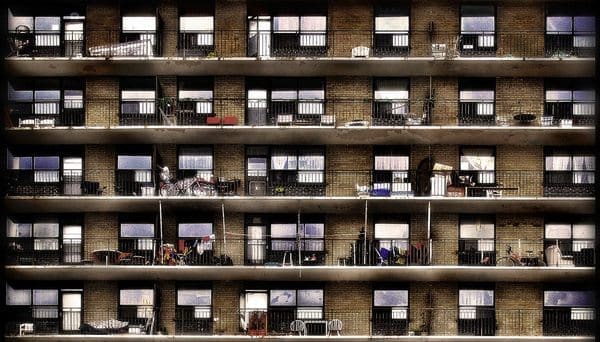It’s hard enough as it is to find a decent apartment in Toronto without having to worry about shoddy landlords, so here’s a list of tricks to watch out for when you’re looking for your next place.
Repair Promises
Sometimes landlords will show apartments before they are fully renovated, restored, or cleaned from previous tenants. They will promise to have the issues resolved by the time you move in. Don’t fall for this trick! Even if you feel confident about the apartment and the landlord’s word, it is still a good idea to have them sign something that assures they will take care of the issue before you sign the lease. Laurie Stephens represents the University of Toronto’s Housing Services, a service that helps new renters understand the basics of renting in Toronto. Stephens says that the most common issues the organization hears about relate to maintenance and repairs. They encourage renters “to first outline their maintenance/repair concerns with the landlord (in writing) and if the issues are not satisfactorily resolved, to then connect with someone at the Federation of Metro Tenants Associations (FMTA) or the Landlord and Tenant Board (LTB) for further advice.”
Damage Deposits
Sometimes a landlord will request a damage deposit from you with your first and last months’ rent. Chris Johnson was all set to sign a lease with his girlfriend a few months ago, when the landlord advised them she would need an extra $700.00 deposit.
“We had all our paperwork ready to go. We were excited about finding a nice place and then she told us about the deposit,”
says Johnson. The rent itself was $1400.00, which meant the deposit was half of one month’s rent. The couple bargained with the landlord because they still wanted the apartment, and she agreed to a $400.00 deposit. But, after doing some research, the couple decided not to take the apartment. According to the LTB,
“A landlord cannot collect a damage deposit that they would use if there is damage done to the unit.”
But still, many landlords will try to get an extra deposit from new tenants. When it comes time to reimburse the tenant for their deposit, they will often come up with a reason to keep it.
Sketchy Leases
Even if a landlord tells you not to worry too much about the fine print in the lease, always read it thoroughly. Landlords can add little tidbits of information that you might not look into — information about appliances, furniture, or other really random things that might not hold up in the unfortunate event of a court case, but that could lead to issues down the road, like the landlord refusing to renew a lease. Be sure to ask plenty of questions and look for details from the landlord if you are unsure about anything in the lease. Sometimes, asking questions will really save you.
Jackie was looking for an apartment with her friend when they found a place they liked. When her friend went to sign the lease, the landlord had changed the terms to three years. Leading up to that, the landlord had implied a standard one-year lease.
“It’s definitely worrisome when the lease is much longer than normal — it makes you think there might be something wrong with the place. It was especially concerning that he hid that until my friend’s dad came to co-sign, “
says Jackie. Needless to say, they did not take the apartment.
“No Pets Allowed”
Even if there were a “no pets” clause in the lease you signed, your landlord cannot evict you if your pet is not a problem to anybody. They can ask you to move out if your pet is dangerous or if they cause allergic reactions or problems for other tenants or the landlord, according to the LTB, but otherwise, the “no pets” clause does not hold up.
Sending Money Before Seeing the Unit
Do not ever sign anything or send money to anyone if you have not seen the place or met anyone in person. Scammers will post ads on Craigslist, and when contacted, they will send an email to explain they are out of town and will need to mail the key to the rental unit. To get the key, they ask that you send the money to them first. This is a scam, but to new renters, it can sometimes seem like a good idea, as the ads have pictures and an address and the scammers’ emails can be quite convincing.
“If they are unable to view a potential rental unit themselves, we recommend that they have a friend or family member view it for them before making any decisions,”
says Stephens, who warns renters about sending funds to unknown landlords.
JMSK





